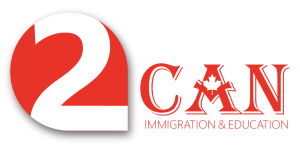* Course Overview
International Master of Business Administration (Blended)
If you are already an experienced manager, and have completed a Postgraduate Diploma in Business Administration (or equivalent), this programme will allow you to top-up your existing qualification to a full IMBA.
Your final project may take the form of a dissertation, consultancy project or work based learning project, and this flexibility will mean that you can tailor your learning to suit your needs.
On successful completion of the International Masters in Business Administration, you will be able to use a range of quantitative and qualitative methods for providing information and evaluating options in an uncertain business environment.
You will be able to demonstrate an in-depth critical understanding of your chosen aspect of business or management, and will have built your problem solving and decision making techniques.
The project options included in this programme are ideal if you are already working in an organisation, whether as an employee, volunteer or intern, as much of the learning involved in completing your choice of project will occur in the workplace and involve real work-based tasks.
* Course Details
Duration : 1 year
Credits : 120 CR
Entry Requirements : Post-graduate diploma in Business Management
Intakes : Every month in 2020.
Delivery Method : Blended
- Blended Learning is a mix of Online to Offline education mode. Students can study all the university materials online but there is minimum offline management.
- Online lectures, webinar, and workshops.
- Independent learning
- Case Study
- Group-based work
Module :
The main educational aims of the programme are to:
- Develop a strategic, integrated and holistic perspective on organisations and management through a study of management at:
- An individual, group and organisational behavioural level
- A functional, process and strategic level
- At local, national and international level. and through reflection on prior experience (both personal and within the cohort)
- Prepare for a senior management career through the development of enhanced personal and interpersonal skills and, in particular, leadership capability and skills in facilitating change in organisation and business and development.
- Equip students with an advanced understanding of concepts and current and pervasive issues in international business and management.
- Enable students to anticipate and address risks that may adversely affect their business thereby helping to ensure future business resilience and sustainability.
- Develop the critical thinking, analytical and research skills needed to make logical arguments and creative contributions to improve business and management practice.
- Be more self-aware of their strengths and aspirations so as to identify potential career development paths.
- Contribute to society at large by enhancing life-Iong learning skills and personal development.
Learning Outcomes:
- Knowledge and Understanding
- Critically evaluate and use a range of quantitative and qualitative methods for providing information and evaluating options in an uncertain business environment
- Demonstrate an in-depth critical understanding of a chosen aspect of business or management through an extended self-managed dissertation project.
- Intellectual/Cognitive Skills
- Select and use appropriate problem solving and decision making techniques including the ability to create, identify and evaluate options and to implement and review decisions.
- Critically reflect on one’s own practice in relation to published literature through an extended dissertation project
- Practical Skills
- Display empathetic and effective two-way communication skills including listening, negotiating and persuading or influencing others.
- Design, implement and critique research into business and management issues.
- Conduct, under supervision, an independent piece of empirical research or problem-based learning demonstrating a mastery of the subject area.
- Key/Transferable Skills
- Incorporate a critical ethical dimension to their practice, managing the implications of ethical dilemmas and works proactively with others to formulate solutions.
- Use personal reflection to analyse self and own actions.
- Make connections between known and unknown areas, to allow for adaptation and change.
- Communicate complex ideas in a written form suitable for dissemination to a wider audience.
FAIR USE STATEMENT
This page may contain copyrighted material the use of which has not always been specifically authorized by the copyright owner. Most of the time, however, we give credits to the author of quotes, photos and other related materials. We sourced these materials from various internet sites, in an effort to advance understanding of environmental, political, geographical, anthropological, biological, human rights, economic, democratic, scientific, cultural and social justice issues, etc.
Source:
